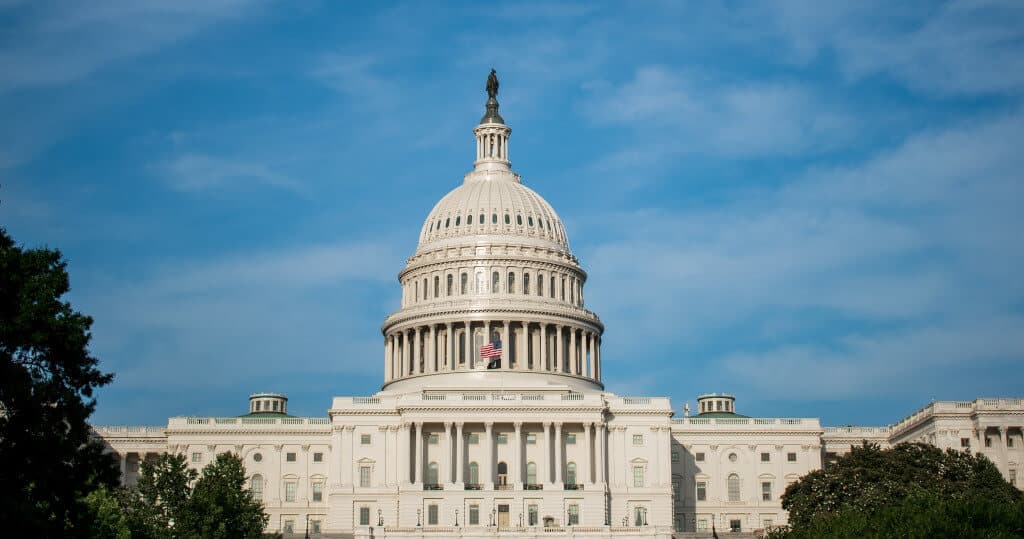21st Amendment
1: The eighteenth article of amendment to the Constitution of the United States is hereby repealed.
2: The transportation or importation into any State, Territory, or possession of the United States for delivery or use therein of intoxicating liquors, in violation of the laws thereof, is hereby prohibited.
3: This article shall be inoperative unless it shall have been ratified as an amendment to the Constitution by conventions in the several States, as provided in the Constitution, within seven years from the date of the submission hereof to the States by the Congress.
21st Amendment Simplified
Section one of the Twenty-First Amendment of the United States Constitution states that the Constitution’s 18th Amendment is repealed.
This means that once the 21st Amendment passed, the Eighteenth Amendment would be permanently removed from the Constitution.

Section Two of the 21st Amendment prohibits the importation and possession of alcohol within the United States by violating the law.
This section of the constitutional amendment permits states to prohibit the transportation, importation, sale, or possession of alcoholic beverages.
Section Three of the 21st Amendment states that the article has to be ratified as an amendment to the United States Constitution within seven years from the date Congress submits it to each state.

When Was the 21st Amendment Passed?
Ratification of the 21st Amendment had to be completed by the required number of states in seven years for the end of national prohibition to be enacted as part of the constitution.
The amendment was proposed in Congress on February 20, 1933, with President Franklin D Roosevelt in office. The 21st Amendment was to repeal another constitutional amendment, and the amendment process passed quickly.

Get Smarter on US News, History, and the Constitution
Join the thousands of fellow patriots who rely on our 5-minute newsletter to stay informed on the key events and trends that shaped our nation's past and continue to shape its present.

What Did the 21st Amendment Do?
In simple terms, upon ratification on December 5, 1933, the nationwide prohibition that lasted for fourteen years ended. This end happened after Utah and thirty-six other states ratified the 21st Amendment of the United States Constitution.
Each state came up with rules regarding alcoholic beverages from drinking age limits, importation, and sales.

However, the drinking age is similar among most states as federal funds are only provided to a state when the minimum age to drink alcohol is 21.
The Termination of Prohibition
After the 18th Amendment was ratified in the constitution and prohibition was instituted, the 21st Amendment was ratified and ended it. The support for prohibition came mainly from the Temperance Movement.
Prohibition was an epic failure, and the 21st Amendment was an acknowledgment of this fact.

Unfortunately, criminals like Al Capone had taken advantage of the demand for illegal alcohol and built up a sizeable criminal empire. This illustrated how much people were disrespecting the law.
However, alcohol was only completely legal in different parts of the country after the 18th Amendment was repealed from the constitution.
Some states had made it legal according to their state legislature, but others still chose to maintain the previous anti-alcohol laws. Some states retained their laws for quite some time and were referred to as “dry states.”

Why Propose the Twenty First Amendment?
Currently, adults of the legal drinking age must follow the rules on when and where they can purchase an alcoholic drink, whether wine, spirits, liquor, or beer.
The question that’s most asked is why the public opinion turned against the Eighteenth Amendment and Prohibition?

It wasn’t only influenced by people wanting to consume alcohol. Most citizens agreed that alcohol prohibition was an experiment that had failed as it hadn’t reduced the alcoholism rate.
There was a massive black market for alcohol, and law enforcement lost its willingness to fight against these illegal acts concerning alcohol.
Organized crime syndicates were on the rise during prohibition. They bribed the police to carry on with their business. Such a state of affairs made it even more apparent that prohibition was failing.




One Response
This is the same course Cannabis and, I might add, ALL illegal substances that America has on the books TODAY need to be acted upon. Making usage illegal births a black market demand. There is also a notable increase in senseless violence amongst gang distribution territories. Usually law enforcement and the courts are overwhelmed. When they decided that the War on Drugs wasn’t working, they stopped short of what MUST BE DONE!